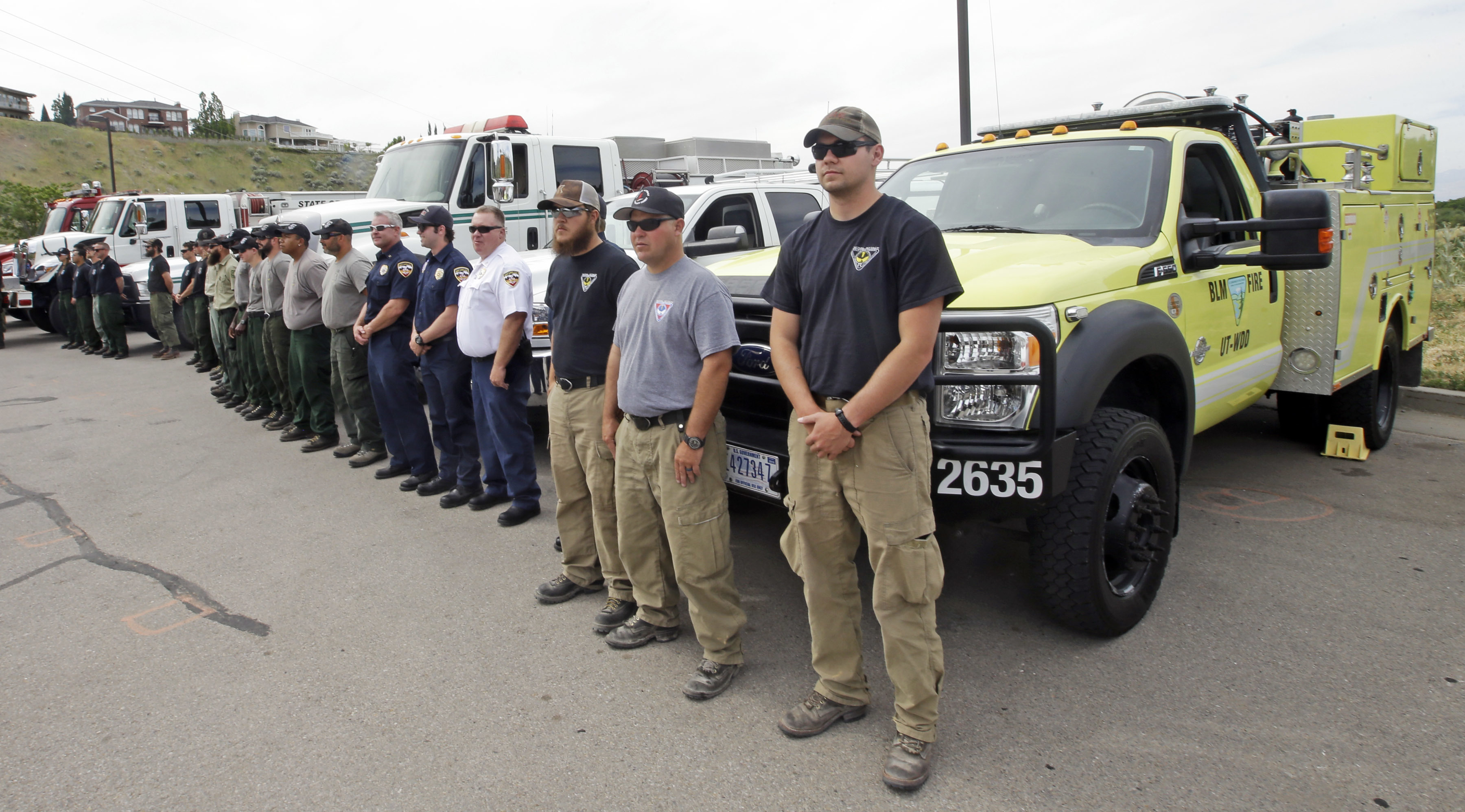Three times in a week, authorities have grounded firefighting aircraft battling the Saddle Fire in Utah because they've detected drones in the area.
![Utah wildfires [image : 86164240]](http://www.gannett-cdn.com/media/2016/06/20/USATODAY/USATODAY/636020564555368610-AP-Utah-Wildfires.jpg)
Firefighters didn't specify what size or kind of drones they saw, but protocols dictate that aircraft be grounded for safety reasons until the skies clear.
"If you fly, we can't!," a public information officer with the Dixie National Forest said in a statement via Twitter. "Please, do not interfere with wildland fire fighting operations."
The lightning-sparked Saddle Fire in southwest Utah is only about 318 acres but firefighters say helicopters and airplanes would be of significant assistance if they could fly consistently.
The latest drone incursion into a five-mile no-fly zone for civilian aircraft around the fire happened Monday, authorities said.
Interfering with firefighters is a federal offense, and Utah also has a new law specifically penalizing the use of drones in a no-fly zone. That new law calls for felony prosecution if a drone collides with a firefighting aircraft.
Forest Service officials said Monday evening that they are indefinitely grounding all aerial firefighting efforts on the Saddle Fire "until the drone intrusion problem is resolved." A spokesperson for the Dixie National Forest couldn't immediately be reached.
Firefighters across the West have increasing struggled with the presence of drones as they battle wildfires.
Wildfires have long attracted amateur photographers, and inexpensive drones equipped high resolution video cameras have proven a temptation to fly around fires. Larger drones have occasionally been used by firefighters -- with appropriate safety measures -- to conduct surveillance.
Firefighters worry a small plane or helicopter might collide with a hobbyist's drone, causing a crash. Firefighting aircraft are already operating under often-chaotic conditions in tight canyons and in low visibility, and pilots say drones can increase the risks.
When a fire is raging, a bucket drop from a helicopter or a slurry line from an aerial tanker can mean the difference between saving a house and watching it burn.


